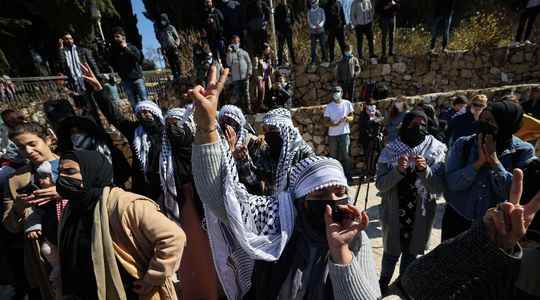The charge was brutal, the retort equally. In a thick report published on February 1, Amnesty International (AI) accuses Israel of carrying out “cruel policies of segregation, dispossession and exclusion in all the territories under its control”. Throughout a document of nearly 300 pages, the fruit of four years of investigation, the organization repeatedly repeats the accusation of apartheid against Israel. “Whether they live in Gaza, East Jerusalem, the West Bank or Israel itself, Palestinians are treated as an inferior racial group,” said Agnès Callamard, the organization’s secretary general, during the presentation of the report. In conclusion, Amnesty urges the international community to “review all cooperation and activities with Israel to ensure that this does not contribute to maintaining the apartheid system”. In other words: a call for a boycott.
Between Israel and Amnesty, a complicated history
The violence of the indictment hardly surprised the Israelis. Amnesty International regularly targets the Jewish state with a ferocity that has made it the bane of the country’s leaders. “Amnesty was a valuable organization that we all respected, today it’s quite the opposite,” tackled Israeli Foreign Minister Yair Lapid. Rather marked on the left and partisan of a Palestinian State, the n°2 of the government crushed the report and explicitly accused its authors of anti-Semitism. “If Israel were not a Jewish state, no one at Amnesty would have dared to attack it. Instead of verifying the facts, they propagate the lies of terrorist organizations”, he stings.
With the exception of a few extreme left movements, which have sometimes fed the report, this reading of the conflict scandalizes Israeli society. Even the left-wing newspaper Ha’aretz advocates indifference and prefers to mock the “hysteria” of the Israeli government which tried to dissuade Amnesty from publishing its document. “These reports get few headlines, then they gather dust as Israel’s trade and diplomatic relations continue to flourish,” said Anshel Pfeffer, one of the daily’s editorial writers.
Even those who share Amnesty’s criticisms of the endless military occupation of the West Bank dispute the use of the term apartheid. “Israel has a lot of problems that need to be resolved, inside the Green Line and certainly in the occupied territories. But Israel is not an apartheid state,” said Arab MP Issawi Frej, a member of the party. left Meretz.
On the ground, a complex situation
The radical nature of the report contrasts with an infinitely more complex reality. The NGO indicates that in international law, apartheid means oppression based on race, ethnicity or nationality. However, the Israeli Arabs (a fifth of the population) belong to the same ethnic group as the Palestinians and yet enjoy the same rights as their fellow Jews within the State of Israel. Many of them even hold enviable positions: doctors, lawyers, magistrates…
And since last June, an Arab party, Islamist moreover, participates in the government coalition. “When so many self-proclaimed pro-Palestinian activists around the world are calling for the boycott, sanctions and destruction of Israel, elected officials are choosing to engage more deeply in Israeli society for the benefit of their people,” Bassem said. Eid, a Palestinian from Jerusalem who campaigns against the boycott of Israel.
United in the face of criticism, Israelis know that Amnesty International’s calls for a boycott are unlikely to be heard. This week, the President of the State, Isaac Herzog, was received with great fanfare in the United Arab Emirates. The Palestinian question has hardly been broached.
